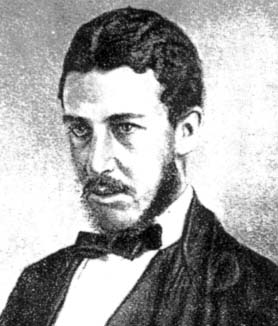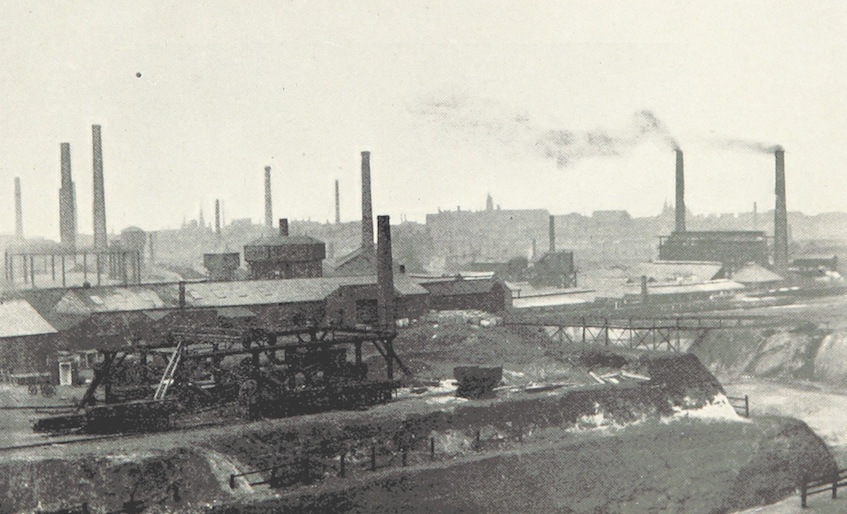The Coal Question in the Age of Carbon

Every age has its Jeremiah, and William Stanley Jevons was the weeping prophet of his times. In the spring of 1865, at the height of British imperial power, the Liverpool-born, London-trained statistician caught the eye of the English reading public with the release of a book foretelling the imminent depletion of the coal resources that had hitherto fueled Great Britain’s global dominance in the industrial era. Titled, in full, The Coal Question, an Inquiry concerning the Progress of the Nation, and the Probable Exhaustion of Our Coal Mines, the book cast doubt upon the sustainability of the rate at which coal consumption was increasing from year to year, and, in so doing, challenged the perpetuity of prosperity that relied on such an annual increase.
The decision to write about coal exhaustion was a calculated one. In a letter to his brother a year earlier, Jevons, whose prior work on logic had, in his own words, “made no noise,” appeared convinced that it had become “necessary… to write on popular subjects” and that a solid publication on this “very serious matter” that was the exhaustion of coal in England “would draw a good deal of attention.”1 He had every reason to believe this. The industrial revolution that had so transformed English society and economy from the late eighteenth century was, after all, very much an energy revolution at its core. “Coal… is the mainspring of modern material civilization,” Jevons contended, “It is the material source of the energy of this country—the universal aid—the factor in everything we do. With coal almost any feat is possible or easy; without it we are thrown back into the laborious poverty of earlier times.” 2 The suggestion then that this coal might run out sometime in the not-too-distant future seemed cause enough for widespread interest, deeply anxious though this may have been.
What Jevons probably did not expect was just how influential the Coal Question would be. In a speech to the House of Commons in 1866, philosopher and politician John Stuart Mill cited Jevons’s work as the basis of his call for the scaling back of national debt. Paraphrasing Jevons’s assessment and prescription, Mill reasoned that if it were indeed true that England’s coal resources would soon be exhausted and current progress consequently decelerated, then it was imperative that government reduce the existing national debt so that posterity would not be left with “pecuniary obligations” it had not the means to pay. 3 Soon after, William Gladstone, then Chancellor of the Exchequer, too endorsed the book for seemingly similar reasons. “It makes a deep impression upon me, and strengthens the convictions I have long entertained, but with an ever-growing force as to our duty with regard to the National Debt,” Gladstone wrote in a letter to Jevons’s publisher.4 The chancellor would invoke the Coal Question when he put forward and pushed through a bill for national debt reduction in the budget that year. 5
Yet a book that had acquired such a stature could not be without its detractors. Jevons himself anticipated as much. “It is quite possible that I may get somewhat roasted before long,” he mused in a letter to his brother, “I shall have to defend myself, or bear it as best as I may.” 6 From the beginning, there were many who thought that Jevons was painting too gloomy a picture at best or fear mongering at worst. 7 Following a debate in parliament around this issue of the “coal panic,” a royal commission was appointed to investigate the extent of the coal deposits across the British Isles. 8 When the commission returned a few years later with figures far exceeding previous estimates, it seemed to the casual observer that Jevons’s worries over the coming exhaustion of coal were largely unfounded. 9
 |
But therein lay one of the core misunderstandings associated with the Coal Question that would dog this work over the decades. To a good number of his critics, Jevons was taken to task for calculating the eventual running out of coal based on an estimate of total deposits that was too low. In this scenario, one need only carry out the necessary geological surveys and ascertain the more accurate, presumably higher estimate, as the royal commission did, in order to discredit Jevons’s claims. However, although he used “exhaustion of our coal mines” in the title of the book—an expression, he recognized, that could easily give rise to the “vague notion that some day our coal seams will be found emptied to the bottom, and swept clean like a coal-cellar”—Jevons was really operating under the assumption that English mines were “literally inexhaustible.” 10
To him, the actual problem was twofold. First, it was about escalating demand for coal. While other projections of how long the nation’s deposits might last tended to be based on fixed current consumption, Jevons’s projections factored in a rate of consumption that increased annually, as was consistent with the years leading up to his study. Second, it was about rising costs of extraction. It was not that the escalating demand would lead to the complete decimation of coal deposits, but that it would run up against rising costs as the more easily recovered coal was excavated and greater amounts of capital became needed to draw coal from deeper beneath the surface. In Jevons’s own words: “The question is, not how long our coal will ensure before absolute exhaustion is effected, but how long will those particular coal-seams last which yield coal of a quality and at a price to enable this country to maintain her present supremacy in manufacturing industry.” 11
Jevons’s framing here is interesting and instructive. Oftentimes, historians of energy, in our attempts to answer the key question of how we arrived at our current state of fossil fuel dependence, look to moments in history when there emerged cornucopianistic ideas of energy resources as limitless, grounded as these ideas typically were in the discovery of deposits of exceptional size. These notions of overwhelming abundance frequently prompted the intensive extraction and prodigious consumption that would ultimately foster and feed a carbon addiction. What is notable here is that Jevons could advance a position of moderation in spite of his belief in the essential inexhaustibility of England’s coal, and he was able to do so because of his focus on demand, costs, and the tension between the two. At the same time, he could recommend restraint also in part because he took the long term view. “We have to make the momentous choice,” Jevons concludes, “between brief but true greatness and longer continued mediocrity.” 12 In our present, a century and a half further into Jevons’s carbon age, we still face that choice, though with higher demand—bound as energy use is to desires for development—and with greater costs—nothing less than the planetary problem of anthropogenic climate change—even if we were to choose mediocrity, it is one that is much diminished.
Notes:
1 William Stanley Jevons, Letters & Journal of W. Stanley Jevons (London: Macmillan and Co., 1886), 195.
2 William Stanley Jevons, The Coal Question, an Inquiry concerning the Progress of the Nation, and the Probable Exhaustion of Our Coal Mines, 3rd ed., rev. (London: Macmillan and Co., 1906 [1865]), 1-2.
3 “House of Commons, Tuesday, April 17,” The Times (April 18, 1866), 6-7.
4 Jevons, Letters & Journal, 218-219.
5 Jevons, Letters & Journal, 222.
6 Jevons, Letters & Journal, 224.
7 Leonard H. Courtney, “Jevons’s Coal Question: Thirty Years After,” Journal of the Royal Statistical Society 60.4 (December, 1897), 789.
8 “House of Commons, Monday, May 7,” The Times (May 8, 1866), 5.
9 Roy Church, The History of the British Coal Industry, vol. 3, 1830-1913: Victorian Pre-eminence (Oxford: Clarendon Press, 1986), 10.
10 Jevons, The Coal Question, xxix-xxx.
11 Jevons, The Coal Question, 35.
12 Jevons, The Coal Question, 460.
Victor K. Seow is assistant professor of history at Cornell University.
